EVENT: Should Social Movement Work Be Paid? January 5, 2023
Should Social Movement Work be Paid?
Thursday, January 5, 2023
7PM EST/ 4PM PST
Sponsored by the Patricia Wismer Professorship in Gender and Diversity at Seattle University, and BCRW
REGISTER HERE: https://www.eventbrite.com/e/dean-spade-should-social-movement-work-be-paid-tickets-483783729157
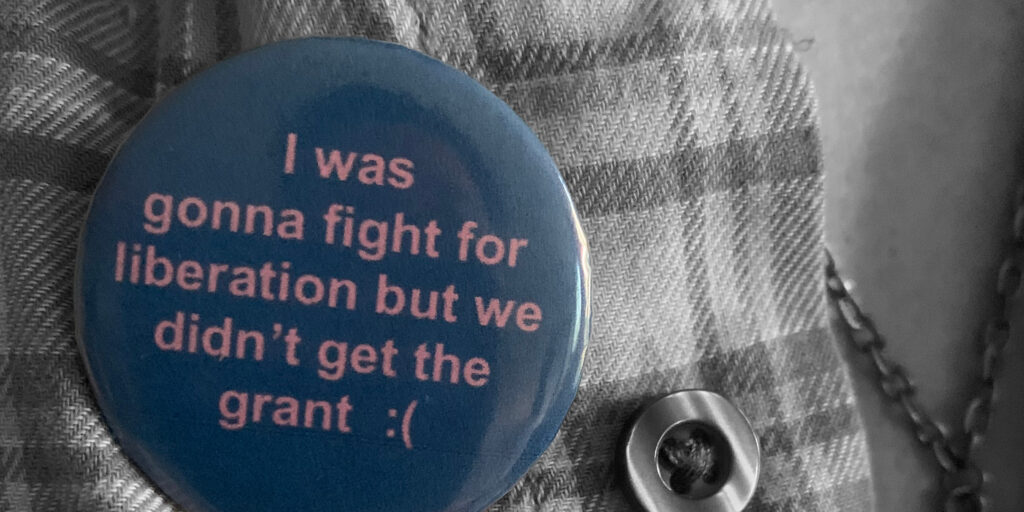
The COVID pandemic and George Floyd/Brionna Taylor rebellion of 2020 brought new attention to the role of mutual aid work in surviving crises and organizing resistance. People started thousands of projects giving out food, rent money, and bail money, doing errands for each other, providing childcare, emotional support, transportation, and other essentials. Many people learned more about the histories of mutual aid in social movements as vectors of survival and mobilization. The long-time critique of non-profitization of social movements reached newly politicized people as debates surfaced about whether to register mutual aid projects as non-profits.
In this talk, Dean Spade will explore a vexing question being discussed in many movement groups: should people be paid to do this work? Should groups should seek funding to create staff positions or stipends for people participating in the work? Is it a matter of racial, economic, gender and disability justice to pay people to be part of movement groups? Does the process of raising money tie groups too closely to philanthropists or governments? Does paying participants limit the potential growth of movements? Is payment the best way to recognize labor in groups? Is paying people a good way to reduce barriers to participation? How does paying people impact the culture of social movement work? Does it institutionalize the work? These questions have immediate practical significance, and also unearth larger themes about what it means to do resistance organizing within capitalism where people are demobilized, isolated, and struggling to meet basic needs.
This event is a continuation of the Building Capacity for Mutual Aid Groups workshop series, which started as a series of four online workshops led by Dean Spade:
Workshop 1 – No Masters, No Flakes! (October 28, 2021)
Workshop 2 – Decision-Making (November 11, 2021)
Workshop 3 – Skills for Abolitionist Practice (December 9, 2021)
Workshop 4 – Bringing New People into the Work (January 20, 2022)
ACCESSIBILITY
ASL and live transcription will be provided. This event is made possible by the Patricia Wismer Professorship in Gender and Diversity at Seattle University.
Workshop Series: Building Capacity for Mutual Aid Groups
October 2021-January 2022 I am offering this series of four workshops about how to meet common obstacles facing mutual aid groups. For each of the posted workshops, you can find the slides, links to resources mentioned, templates of proposals I discussed in the workshops, and other tools in the links below each video here. The last in the series is coming up January 20. Register here.
WORKSHOP 1: No Masters, No Flakes
Group culture, capacity, overwork, procrastination, and perfectionism in mutual aid groups.
Presentation slides (PDF)
Results from the live polls (PDF)
Resources
Dean Spade: Facilitating Conversations about Capacity in Mutual Aid Groups (video)
Dean Spade: Burnout in Mutual Aid Groups (video)
Building Capacity for Mutual Aid Groups (Workshop 2): Decision-Making (video)
WORKSHOP 2: Decision-Making
Resources
Dean Spade: Facilitating Conversations about Capacity in Mutual Aid Groups (video)
Dean Spade: Burnout in Mutual Aid Groups (video)
Building Capacity for Mutual Aid Groups (Workshop 1): No Masters, No Flakes! (video)
Consensus (Direct Democracy @ Occupy Wall Street) (video)
WORKSHOP 3: Skills for Abolitionist Practice
Live transcription is available here.
A workshop with Dean Spade about giving and receiving feedback in mutual aid groups.
Resources
- Slides from the workshop
- Workshop template – slide deck template to put on a workshop about group culture and feedback in your mutual aid group (Google slideshow)
- Turning Toward Each Other: A Conflict Workbook
- In It Together – a new workbook/toolkit for groups doing social movement work about conflict in our groups
- Centered Self-Accountability by Shannon Perez-Darby
- Building Accountable Communities video series
WORKSHOP 4: Bringing New People Into the Work
More videos from this series:
- Why Should Mutual Aid Groups Use Consensus Decision Making?
- Building Trust in Groups Using Consensus Decision Making
- Basic Steps in Consensus Decision Making
- Facilitation for Consensus Decision Making
- Mutual Aid and Internalized Cultural Messages about Work
- Horizontal Group Structures in Mutual Aid Work
- Group Culture around Capacity in Mutual Aid
- Facilitating Conversations about Capacity in Mutual Aid Groups
- Burnout in Mutual Aid Groups
Video: In Conversation with Kelly Hayes about Mutual Aid
I had the great honor to be part of the Women’s History Month Annual Symposium at Northwestern University, where I got to be in conversation with Kelly Hayes about mutual aid. Check it out!
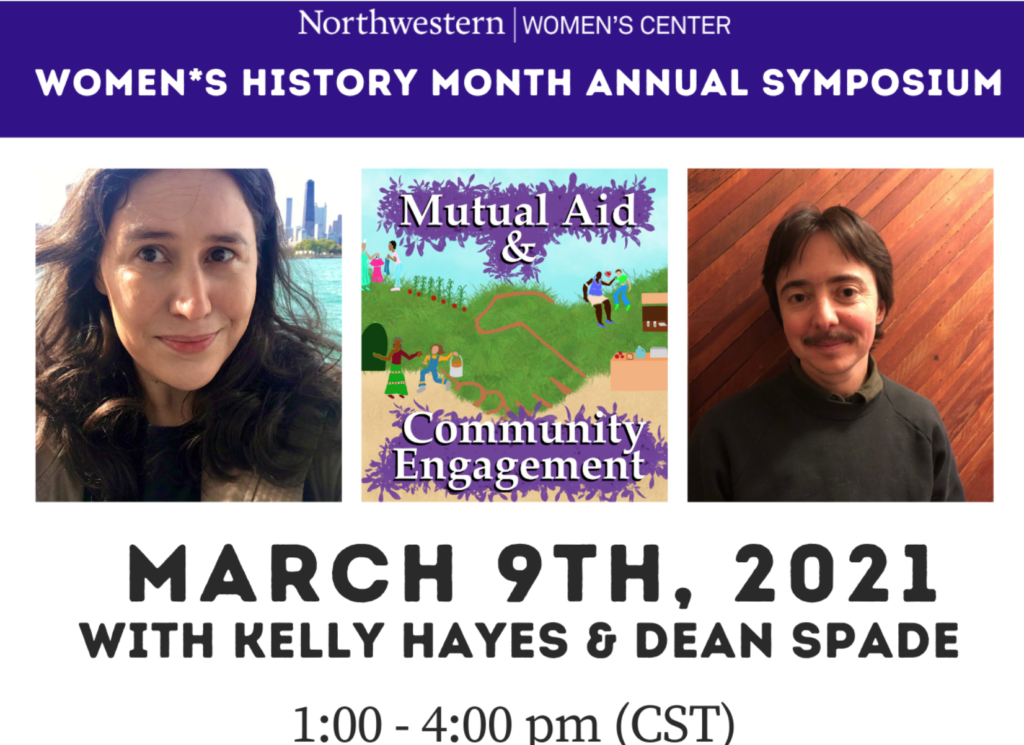
Resources about the Role of Lawyers in Social Movements
People who are considering going to law school are already started or finished law school ask me about this question a lot. Here are some of the things I have put together over the years that may be useful.
Here’s a captioned video from a recent presentation at Northwestern: “Fighting to Win: The Roles of Lawyering and Law Reform in Liberation Struggles”.
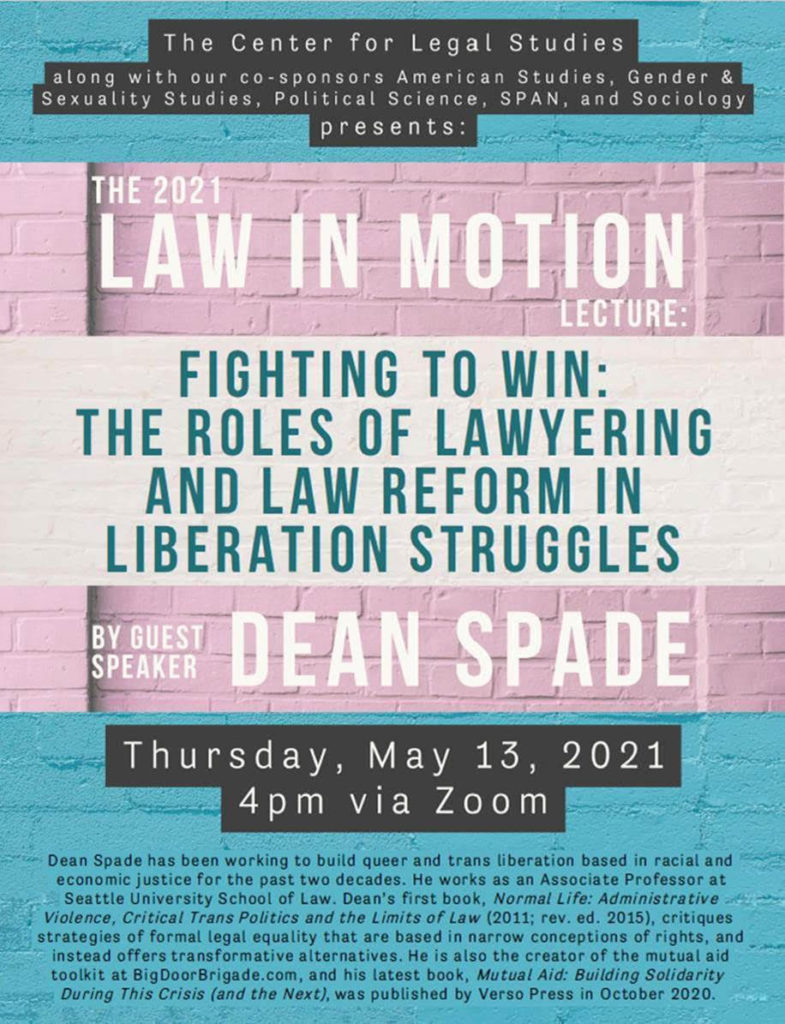
Here’s a captioned video of a May 2021 conversation with Stanford Law students about the role of lawyers in movements and how people who are in law school or have graduated from law school can be of service to movements. Here is a captioned video recording from an event titled “What Every Activist Should Know Before Going to Law School” hosted by the University of Washington’s Legal Pathways program in April 2020.

And finally, about ten years ago I published this short essay in the lefty law journal Unbound about the myths that mislead a lot of people who want social change to think they should go to law school, and the realities people should know before going. I think it is still a pretty good summary of the issues.
Video: Conversation about Mutual Aid with Nikkita Oliver
It was such a treat to have a conversation with Nikkita Oliver, one of my favorite collaborators and teachers, about my new book on mutual aid in January.
Comic about My Interview with JVN
My favorite comic artist, Ellen O’Grady, made this comic about her experience listening to my interview with Jonathan Van Ness. I’m just including a couple favorite images of it below, check out the whole thing here.
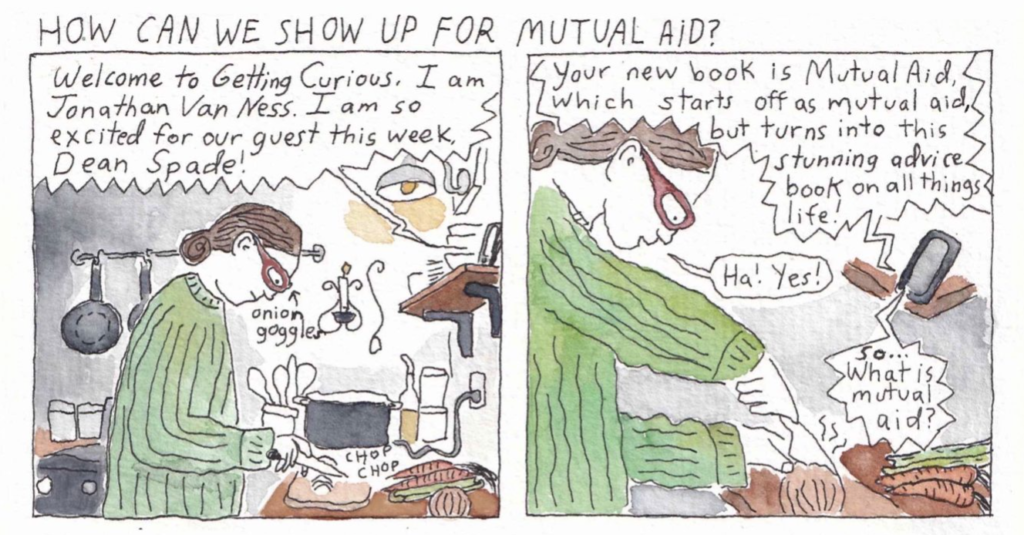
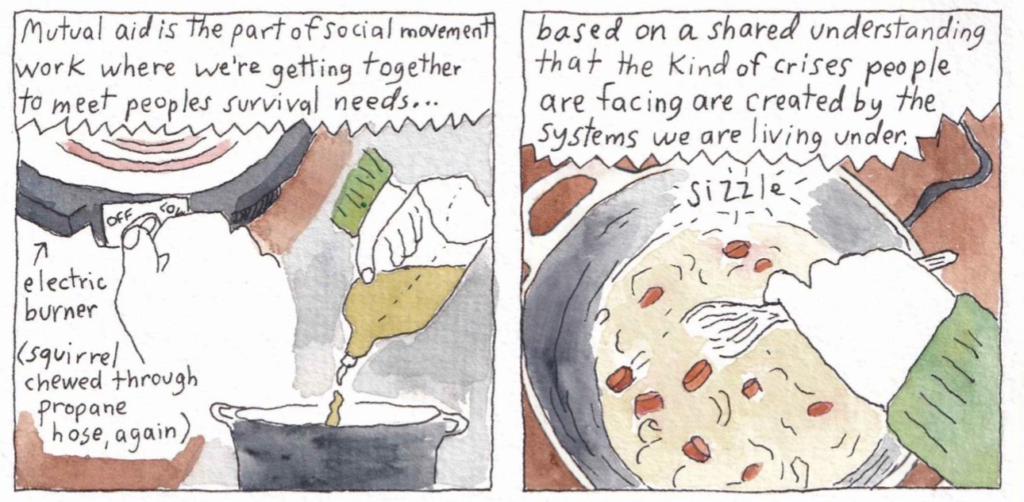
CLAGS 30th Anniversary Event Video: Queer and Trans Activism Then and Now
It was such an honor to be part of this panel of Kessler Award winners, with Urvashi Vaid and Amber Hollibaugh, skillfully facilitated by Shanté Paradigm Smalls.
Video: Bodies, Sexualities and Law Panel
I had the pleasure of being part of this conversation with Madhavi Menon, Rahul Rao, and Flavia Agnes.
New Interview with Them about Why I Oppose Trans Military Inclusion Advocacy
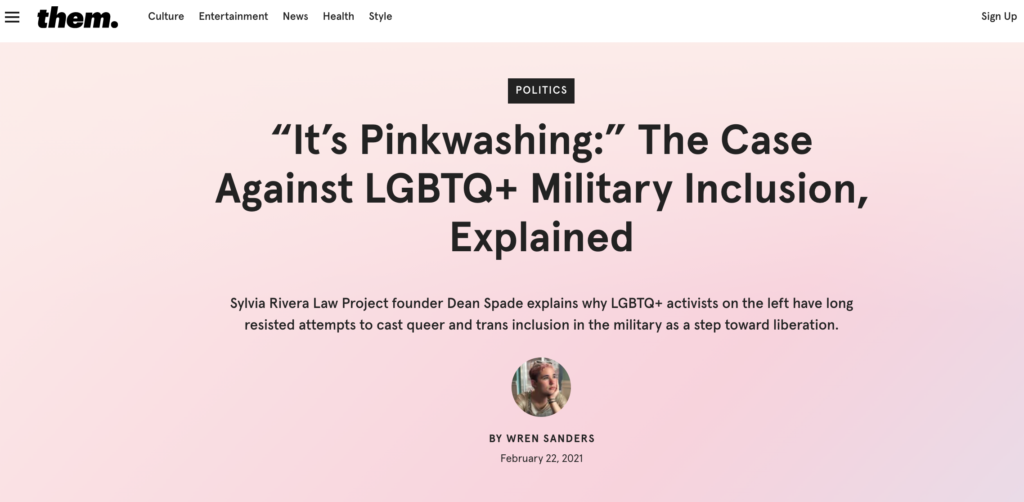
Just five days after being sworn in as the 46th President of the United States, Joe Biden signed an executive order overturning former President Trump’s ban on openly transgender Americans serving in the military. “All Americans who are qualified to serve in the Armed Forces of the United States should be able to serve,” it read, going on to argue that an “inclusive military strengthens our national security.”
Biden’s executive order, one of a flurry he signed during his administration’s first week, marked the fulfillment of one of his foremost policy proposals regarding the advancement of LGBTQ+ equality in America. More specifically, the order counteracted a 2017 directive by the Trump administration banning openly trans folks from the armed services — itself a reversal of the Obama administration’s 2016 order that paved the way for trans Americans to serve in the military without hiding their gender identity.
Continue reading “New Interview with Them about Why I Oppose Trans Military Inclusion Advocacy”